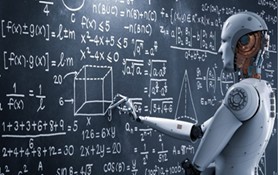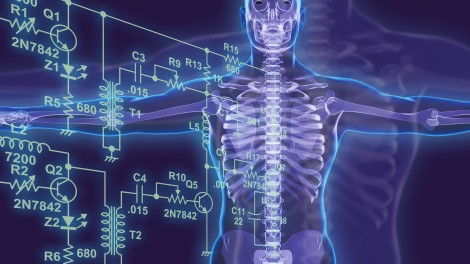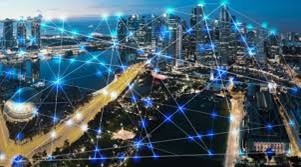Special session 1: COVID-19 Pandemic Related Research Approaches and tools
Scope
The COVID-19 pandemic and its variants continue to spread across the world and cause very heavy damage
that continues to grow. Faced with this uncontrolled situation, governments are forced to apply
restrictive measures or even impose lockdowns in order to limit human losses and reduce the pressure on
health systems. The very heavy economic, social, psychological and political impacts have led to new
problems and very urgent challenges which the community of scientific and technical researchers is more
than ever called upon to study in order to propose contributions and innovations that make it possible
to reduce the negative effects of the pandemic. The purpose of this special session is to highlight the
latest progress in the diagnosis and treatment of the COVID-19 pandemic, provide innovative solutions
and tools based on AI technology, machine learning, robotics and autonomous systems in order to overcome
the challenges generated by the pandemic and improve the living conditions of humanity and assist the
healthcare workers and patients of COVID-19.
|
Topics
- Mathematical and Computational Modelling of COVID-19 pandemic: Dynamics, simulation, prediction, and
Control
- Monitoring and control systems for COVID-19
- Intelligent IoT Framework and Technology for Social Distance
- Assistive robotics and autonomous systems for Healthcare delivery in COVID-19 pandemic context
- Healthcare Smart Web-based Applications and tools for COVID-19
- Internet of Medical Things and Sensor Network
- Big Data analytics and IA Tools for COVID-19
- IA and Machine learning Implementation for COVID
- Covid-19 pandemic vs Social transformations
- Coronavirus News Sentiment Analysis
- Researches on Social and Psychological impacts of COVID-19
- Digital Transformation, new approaches of Education in the Context of COVID-19
- Techniques and tools supporting Distance learning and teaching
- New e-learning and blended learning solutions in COVID-19 pandemic context
- etc.
|
 |
|
Chair:
Prof. QBADOU Mohammed ENSET Mohammedia , Morocco
Contact:
mohammed.qbadou@univh2c.ma
|
Special session 2: Emerging Technologies in Education and Training
Scope
Information and Communication Technology (ICT) is actually very present in our normal lives. We are
surrounded by the product and services of this technology from automatic parking systems, smart sensors
for taking spectacular photos to personal assistance. Similarly, in the field of education and training
ICT is being felt more and more and traditional teaching/learning methods are changing dramatically.
Furthermore, rational using and integrating of ICT in classroom practices as in distance
teaching/learning can significantly contribute to a good quality of education and its effectiveness.
In other hand, the emergence of Artificial intelligence AI techniques such as Machine Learning (ML) and
Deep Learning (DL) together with the Internet of Things (IoT) promises to open new advances in the
detection, understanding, and correction of Handicaps and learning disabilities.
The purpose of this special session is to present recent high-quality research on different problems
related to information technology and its applications in intelligent education and training from
primary to higher school.
|
Topics
- Smart classroom
- IoT for learning
- Mobile Learning
- Blended Learning
- Personalized Learning
- Reinforcement Learning
- Smart Content management
- Intelligent Learning Systems
- Game-based learning and systems
- Data Analytics & Big Data in Education
- ICT in Administrative Tasks management
- ICT skills and competencies among teachers
- Machine Learning (ML) and Deep Learning (DL)
- ICT in Evaluation and Assessment of Student Learning
- Effective Ways of integrating ICT in Education and training
- Virtual Reality (VR) and Augmented Reality (AR) in learning
- AI for Detection and correction of handicaps and learning disabilities
- etc.
|
 |
|
Chair:
Prof. CHERRADI Bouchaib CRMEF Casablanca-Settat, S. P. El Jadida, Morocco
Contact:
bouchaib.cherradi@enset-media.ac.ma
|
Special session 3: Computer Vision and Pattern Recognition
Scope
Computer vision and pattern recognition are essential areas of artificial intelligence. Research work
has been considerably expanded over the last ten years, and this trend continues especially in computer
vision, pattern recognition, automatic speech recognition, etc. This trend has become a strategic
element in developing methods, control tools and inaccessible data access techniques from images, audio
and video. Indeed, the growth of the population requires the implementation of intelligent systems to
ensure a competitive advantage of cost optimization and the satisfaction of users.
The purpose of this special session is to develop intelligent systems in the field of computer
technologies such as: image processing, shape analysis, graphics recognition, speech recognition, video
processing, etc. In this context, it is necessary to design new algorithms, new methods, new
applications and new techniques related to computer vision and the pattern recognition.
|
Topics
- 3D Object Recognition
- Automatic Speech Processing
- Character and Word Recognition
- Character and Word Segmentation
- Digital Libraries
- Distributed Document Collections
- Document Image Processing
- Facial Recognition
- Feature Detectors and Descriptors
- Graphics Recognition
- Handwriting Models and Analysis
- Image and Video Synthesis
- Intelligent Systems
- Machine Vision
- Medical Image
- Multimedia and Hypermedia Analysis
- Natural Language Issues
- Recognition of Traffic Signs
- Robotics
- Speech Recognition
- Storage and Retrieval of Documents
- Text Analysis and Processing
- Vision Applications and Systems
- etc.
|
 |
|
Chair:
Prof. AGHOUTANE Badraddine FS Meknes , Morocco
Contact:
b.aghoutane@fpe.umi.ac.ma
|
Special session 4: Nature-Inspired approaches Towards Intelligent
Biomedical Engineering
Scope
Nature-Inspired Approaches Toward Intelligent Biomedical Engineering is a vital reference source for
scientific research and healthcare industry on new trends and techniques in the exploitation of
nature-inspired approaches in biomedical engineering. These advancements have led to significant
progress and novel opportunities for biomedical engineering. This special session aims to give a
theoretical discussion on using nature-inspired artificial intelligent techniques, Swarm Intelligence,
Clinical Decision Support Systems… for obtaining intelligent applications within biomedical
engineering. This special session is an ideal resource for medical practitioners, professionals,
students, engineers, and researchers interested in the latest developments in biomedical technologies.
|
Topics
- Biomedical Signal Processing
- Biomedical Imaging and Image Processing
- Micro/Nano-bioengineering and Cellular/Tissue Engineering & Biomaterials
- Computational Systems, Modeling and Simulation in Medicine, Multiscale Modeling, Synthetic Biology
- Cardiovascular and Respiratory Systems Engineering
- Artificial Immune System
- Artificial Intelligence
- Clinical Decision Support Systems
- Counting Bacteria
- Differential Diagnosis
- Swarm Intelligence
- Watershed Transformation
- etc.
|

|
|
Chair:
Prof. SALLEM Amin ISGI-SFAX, Tunisia
Contact:
aminsallem@hotmail.com
|
Special session 5: Smart Grid and Renewable Energy
Scope
To deal with the economic and environmental challenges of the energy systems management, several nations
have set some ambitious targets in terms of their energy policy. Modernization of the electricity grid,
decentralization of electricity production and the integration of renewable energies constitute the main
pillars of this challenge. This session will highlight original research that concerns such issues as
the design, operation, control or implementation of sustainable energy systems and smart grid
infrastructure, clean and renewable energy, power engineering and sustainable transportation systems.
Emphasis will be placed on those issues that concern the technologies and methods that deal with any of
these aspects of smart grids and sustainable energy: demonstrating experimental analysis and design;
control engineering; protection systems; modelling and simulation; computational intelligence;
optimization algorithms; and data analysis.
|
Topics
- Applications of smart grid to cyber and physical security systems
- Energy management systems (with application to building and home automation)
- Communication and control in energy systems Intelligent monitoring and outage management
- Smart sensors and advanced metering infrastructure
- Wide-area protection
- Microgrids
- Renewable energy
- Energy storage and distributed energy resources
- Plug-in vehicles and low-carbon transportation alternatives
- etc.
|

|
|
Chairs:
Prof. KAHAJI Abdelilah ENSA Agadir, Morocco
Prof. RAIHANI Abdelhadi ENSET Mohammedia, Morocco
Contact:
a.kahaji@uiz.ac.ma
raihani@enset-media.ac.ma
|